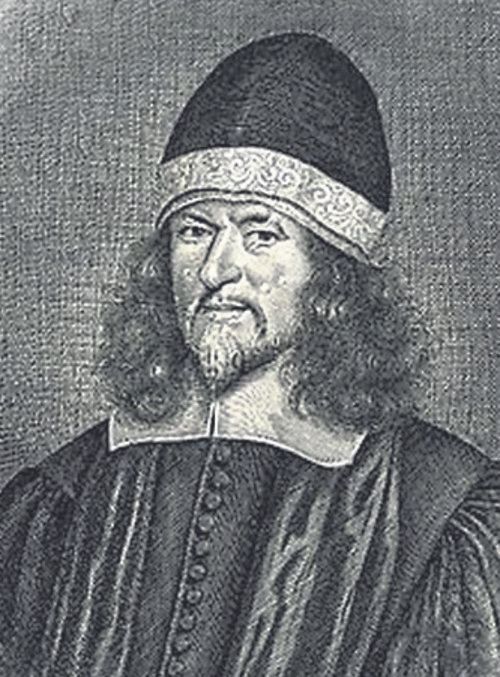One of the most powerful spiritual awakenings in our nation took place in the early decades of the last century. As with many such works of God, a spiritual leader was raised up as a chosen instrument.
Hugh Bourne was the son of a drunkard farmer, whose wife was religious but unenlightened. He was born on 3 April 1772 in Fordhays in the parish of Stoke-on-Trent.
Hugh was a bashful and reticent child who, from early days, had spiritual longings after God. He desired to please God but, not knowing the power of Jesus Christ, he sought to do this in his own strength, by obedience to the law of God.
He soon discovered that he failed to satisfy his own expectations, let alone God’s requirements. We read ‘he seldom went to bed at night without a dread of awakening in hell before morning’.
Soul-searching
He bore a burden of conviction of sin from the age of seven, for a period of twenty years. His restless and troubled soul knew no peace with God nor joy of salvation. He was later to call these years his ‘wilderness state’. These twenty years of sorrow ‘we consider were years of deep training for the work of the ministry’, wrote John Walford, his official biographer.

Other men whom God greatly used in the past went through similar times of soul-searching and conviction of sin. Augustine of Hippo, Martin Luther, John Wesley, William Grimshaw and Charles Haddon Spurgeon are all notable examples. Much of the spiritual insight and understanding gained by these men arose from God’s dealings with them during those painful years leading up to their conversion.
Always learning
As a lad, young Hugh Bourne gave much time to reading and studying the Bible. In his early years he learnt large portions of the Bible and many of Isaac Watts’ hymns and versions of the Psalms. He had a quick and retentive mind, and made rapid progress at school, but was withdrawn by his father when he was thirteen to work on the farm. His father’s brother-in-law was a millwright and engineer of some note, so when an opportunity arose he was apprenticed to his uncle.
During those years, despite long hours of work, he continued his private reading and studies. In addition to his scientific studies, he read theology, history and geography. And he also learnt Latin, French, Greek and Hebrew.

But though he was ‘always learning’ he was ‘never able to come to a knowledge of the truth’. Occasional contacts with the Methodists caused him some reflection. He read Thomas Goodwin’s Child of Light Walking in Darkness, but though there was much in it which seemed to apply to him, he was not yet a child of light.
Rejoicing in liberty
One day his mother borrowed a large book which had bound up within its covers John Fletcher’s Life, Richard Baxter’s Call to the Unconverted, Joseph Alleine’s Alarm to the Unconverted, and the lives of some of the early Methodist preachers and various sermons.
Hugh read this book with great interest and received much spiritual light from it. He was particularly affected by a sermon of John Wesley’s on John 5:7. This was followed by reading other books, some by early Quakers, and also The Life of John Wesley by Coke and More.
He gradually began to see that the way of justification before God was through faith alone in Jesus Christ, and that he was in need of the new birth. As is often the case, Satan countered with evil thoughts and suggestions that he was beyond hope. A history of Captain Barnaby had a profound effect upon him, and he began earnestly to seek the Lord.
One of the books he had been reading was John Fletcher’s Letters on the Spiritual Manifestations of the Son of God (a spiritual classic still available from Rushworth Publications under the title Christ Manifested).
He tells us that one Sunday morning, as he read Fletcher’s Letters, ‘I realised the blessing named in John 14:21 (“He who loves me will be loved by my Father and I will love him and will manifest myself to him”) … and I was born again in an instant’. This was in the spring of 1799. The dark night of the soul was at an end, and Hugh Bourne was rejoicing in the liberty of a child of God.
Old bottles, new wine
Hugh Bourne soon began to bear witness to Christ. He wrote out an account of his conversion and gave it to a collier, Daniel Shubotham, an ungodly man with a bad reputation. Shubotham was converted, and this became the occasion of widespread comment among the miners.
Shubotham was fearless and did much to stir up Bourne and help him overcome his natural timidity. At this time, Wesleyan Methodism in the Potteries was in a low spiritual state. So much so, that though Bourne and his early friends joined the Methodists, ‘the old bottles’ were unable to contain ‘the new wine’.
And so Primitive Methodism was born; and there began a succession of spiritual revivals from 1801 onwards which resulted in the largest ingathering of working-class people to the kingdom of God that this nation has ever known.
Knowledge of God
Nothing could be more fitting than that the two-hundredth anniversary of the conversion of this outstanding Christian leader should be marked by the republication of the Memoirs of the Life and Labours of Hugh Bourne (1772-1852). The book is by John Walford and will be published in two hardback volumes.
The present writer has long regarded these two volumes as one of the most wonderful accounts of a work of God he has read. I give them a four star recommendation. The omission of one star is on account of the Arminian tendency and the Wesleyan holiness teaching.
But the emphasis upon the grace of God, and on salvation as a sovereign work of the Holy Spirit, together with a deep experimental knowledge of God and dependence on the Lord Jesus Christ, commends this work to us. It is one of the most amazing and humbling accounts of spiritual awakening ever written.






